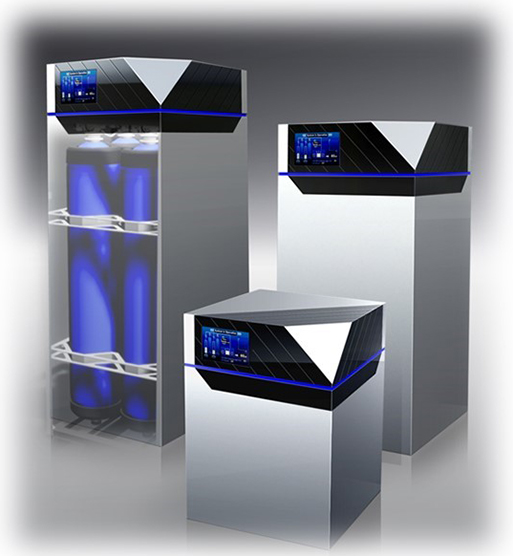- Toyota has developed a hydrogen storage module that integrates multiple resin high-pressure hydrogen tanks at 70 MPa for automobiles―already proven in the “Mirai” fuel cell vehicle (FCEV)―and safety devices such as a hydrogen detector and an automatic shut-off switch.
Toyota has been working on initiatives toward realizing a hydrogen-based society, such as the sale of FCEVs and FC systems. As part of this, the 70 MPa resin high-pressure hydrogen tank developed for automobiles is now the subject of numerous requests from those who would like to use it in railways, shipping, and port cargo handling, as well as FC generators. However, using the same tanks in various fields requires meeting different safety standards and adjusting to each environment. For this reason, they are not currently used for a wide range of purposes.

The Toyota Mirai concept. Image credit: Toyota
The Japanese government is working on a range of studies to promote the early adoption of hydrogen while ensuring safety, and Toyota and its business partners are ready to offer cooperation and support. Toyota developed this hydrogen storage module as a way to answer these demands and expand the use of hydrogen.

The three hydrogen storage modules developed by Toyota. Image credit: Toyota
In addition to the three variations of hydrogen capacity based on the resin high-pressure hydrogen tank used in the Mirai, large modules that use tanks with enlarged capacities are also included in the lineup.
Author: Bryan Groenendaal
Source: Toyota










